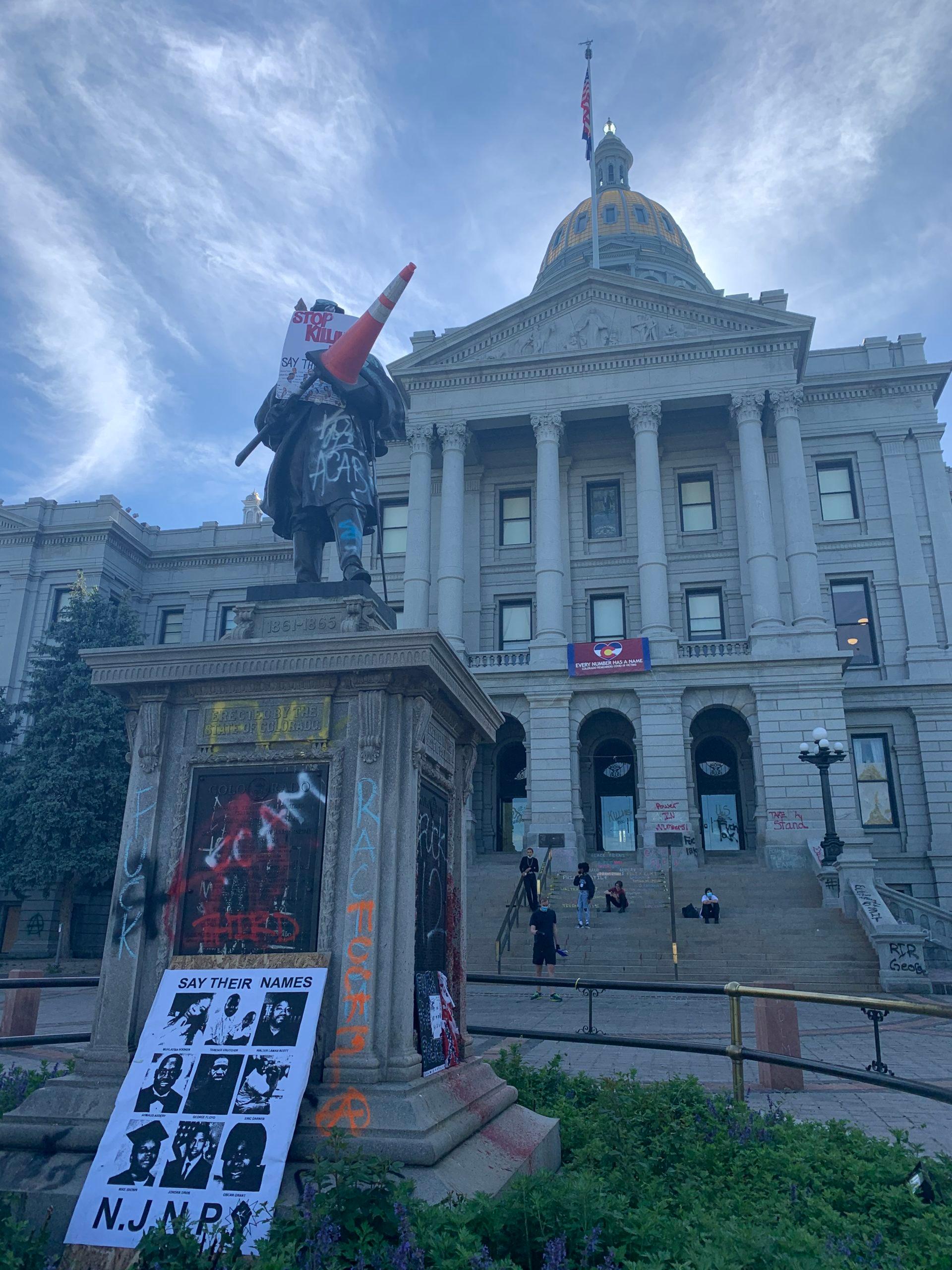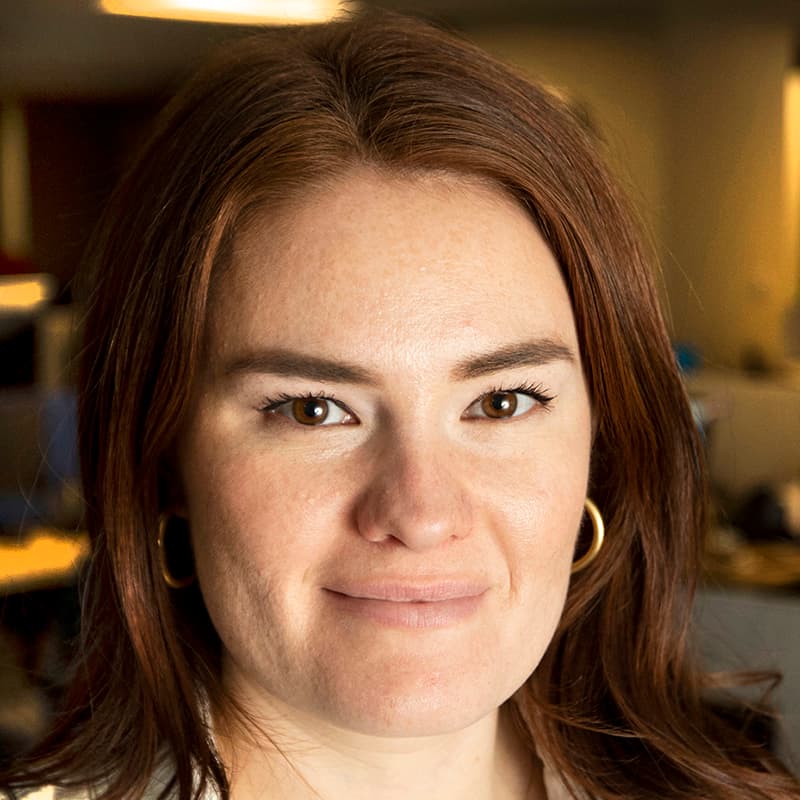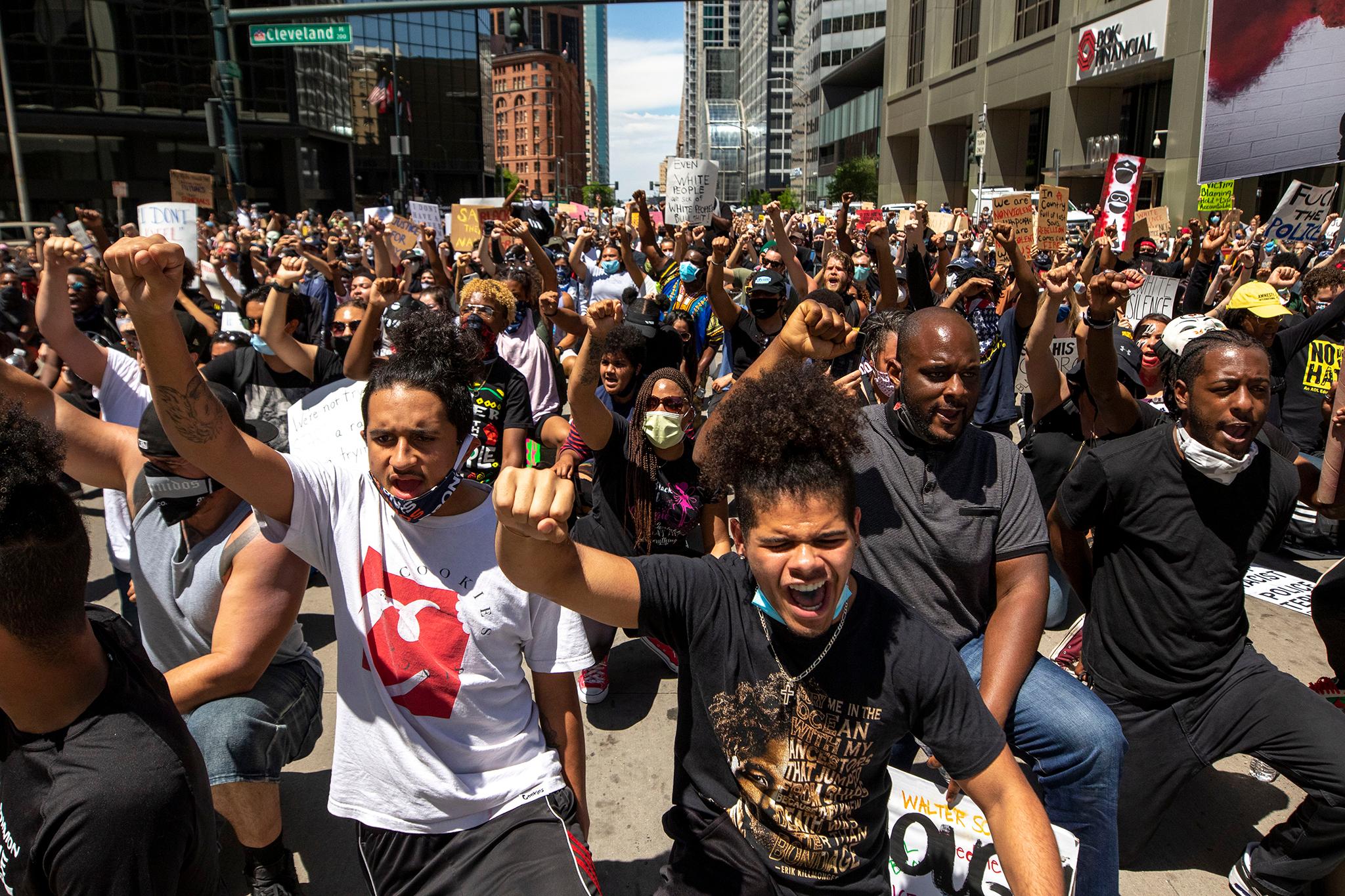The State Capitol was quiet Sunday morning. Dozens of people, including some participants of Saturday's protests, scrubbed spray paint off the building and picked up the empty water bottles, fragments of pepper bullets and protest signs that demanded justice for George Floyd and insisted that Black Lives Matter strewn across the parking lot.
Police hadn't deployed tear gas to disperse crowds in hours, but the chemical smell lingered.
Arsen Shagoian scrubbed black paint off the northeast side of the Capitol while his nearly-3-year-old son, Henry, scurried around an intricately carved brown statue tucked into a corner of the building.
More than 100 years ago, Turks killed an estimated 1.5 million Armenians, a genocide memorialized by the state of Colorado with the monument. The "khachkar," as it's known in Armenia, is carved with Christian crosses that date back to Medieval times.

Shagoian, a native Armenian, said he heard the monument had been vandalized Saturday and wanted to help clean it.
"Whoever did it, they probably didn't even read what's on it," he said. The first line of the plaque on the memorial reads: "This monument commemorates the victims of all crimes against humanity."
"They don't even have an idea," he said.
Armenians for Colorado released a statement about the vandalism Saturday night.
"As Armenian Americans, a community that has survived genocide and centuries of oppression, we recognize and condemn the ongoing injustices against our African American community and we join them in calling for justice for George Floyd," it reads. "Any vandalism against the Capitol khachkar is particularly painful given that it is a replica of one of the 3,000 medieval cross-stones of the legendary Djulfa cemetery destroyed by Azerbaijan's government in 2005 as part of their plan of erasing the Armenian history in Nakhichevan."
Shagoian and his wife moved to Colorado five years ago, settling in Glendale. He has been listening to news on the radio about protests in Denver and around the U.S. instigated by the death of Floyd, a black Minneapolis man who died after a white officer pressed his knee into his neck for nearly 10 minutes. The officer has been charged with third-degree murder.
"I support all the movement, but going crazy and vandalizing, doing all this stuff, it doesn't make sense," Shagoian said.
Recent protests in Denver start peacefully but descend into rioting after many participants leave.
Prominent local Black leaders, including Mayor Michael Hancock, Rep. Leslie Herod and Denver Public School board member Tay Anderson, have decried the violence and have attempted to separate the mission of protests from it. Police chief Paul Pazen has blamed the rioting and looting on outsiders, but has declined to elaborate.
Richie Robinson lives across the street from the Capitol in the Newhouse hotel. He and his neighbors watched as protesters chanted and marched on Saturday and later watched rioters vandalize the area. Robinson said police were parked in the lot next to the Newhouse, shooting pepper bullets into crowds.
Trash bag in hand, Robinson was out Sunday morning picking up debris as a neighbor scrubbed spray paint that read "f*** the police" off the side of the hotel.
"To me, it seemed like around 7:30, 8, there's a whole different crowd that came down here," he said. "They were just very different than the day people that were protesting."
Robinson said he and his neighbors hadn't coordinated their clean-up efforts, and he was surprised at the large number of people cleaning around the Capitol when he started Sunday.
Robinson, who is Black, said cleaning felt like a better way to protest than what he saw late Saturday.
"Everything that happened, the violence and the breaking, the vandalism, to me, it defeats the purpose," he said. "These are innocent people that are honest, God-fearing businesspeople. What do they have to do with what happened with the brutality of the police department, and that's just one person? I don't think it's fair to take out your anger on people that don't have anything to do with it. Violence does not solve violence."
Across Lincoln Street, Ean Tafoya stood in a crowd of volunteers he organized to help clean Civic Center Park and the surrounding area.
The longtime community organizer and activist put out a call on social media Saturday, asking for people to help clean. Several dozen responded, including parents with children and people who wore clothing that said "Black Lives Matter."
A representative of the city's parks and rec department thanked the volunteers, noting the city would clean the spray paint off the historical structures in the nearby amphitheater. Tafoya listened and scanned the crowd.
"The point of today is for us to come together and heal, to show pride in our community and to support the protesters," Tafoya said. "This isn't against them -- we understand what's happening here."
Looking east toward the Capitol, Tafoya pointed to the Colorado Soldiers Monument honoring past military leaders that welcomes visitors on the west steps. A construction cone placed by protesters was still covering the statue's rifle.

Beneath the statue was a large poster with the names and faces of Black people killed by police. Passersby Sunday morning stopped to take pictures and read what it said, meditating on its message.
The statue honors past military leaders in Colorado. It includes the name of the colonel who led the Sand Creek massacre that killed an estimated 500 Arapaho and Cheyenne in 1864. The statue lists the massacre as a "battle."
"We're here in front of this statue because this has been going on for 500 years," Tafoya said. "This is just a valve release. We need change."












